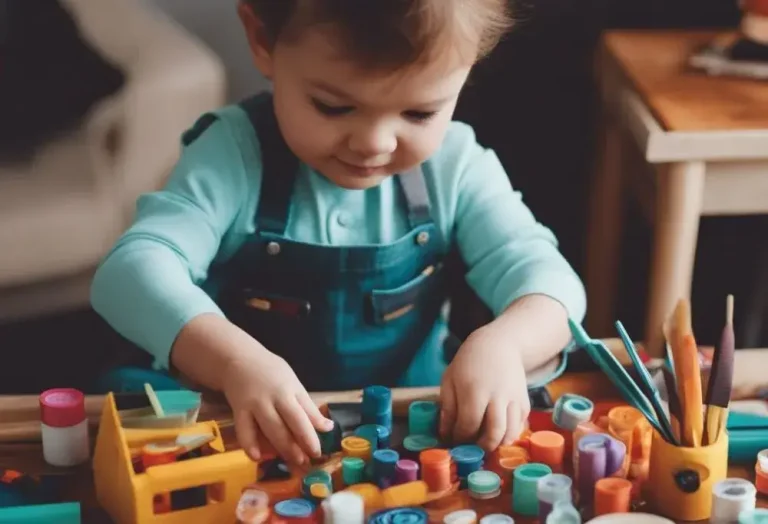What Are the Signs Your Child Isn’t Getting Enough Sleep?
In today’s fast-paced world, it’s easy to miss the signs that a child isn’t sleeping enough. Lack of sleep can have serious effects on a child’s health and ability to learn. Parents and teachers need to look out for certain behaviors that suggest a child needs more rest. Obvious signs include difficulty waking up and tiredness during the day. Other indicators might not be as clear, such as changes in mood, increased irritability, or trouble focusing.
If a child seems more emotional than usual or has a short temper, this could be a clue they’re not resting well at night. Problems with attention, memory, or decision-making at school can also signal sleep deprivation. Physical symptoms like dark circles under the eyes, frequent yawning, or relying on naps might mean a child isn’t getting enough sleep.
Addressing these issues starts with noticing these behaviors. Then, parents and teachers can work to set consistent bedtimes, create a calming bedtime routine, and ensure the child’s sleep environment is quiet and comfortable. By taking these steps, we can help children get the sleep they need for their overall well-being.
“Ensuring a child’s well-rested is not just about avoiding grumpiness, it’s about setting them up for success in every part of their life,” as a sleep expert might say.
Morning Wake-Up Struggles
When a child has trouble waking up in the morning, it’s often a sign they’re not getting enough sleep. These difficulties include hitting the snooze button multiple times, waking up cranky, and not wanting to get out of bed. These signs point to a sleep cycle that’s been cut short or disturbed, meaning the child isn’t getting the deep sleep needed for good health and sharp thinking.
If a child is often tired in the morning, it can make school harder for them, change their mood, and might suggest they have a sleep problem. Parents who notice these issues should take a good look at their child’s sleeping habits and the bedroom setup to make sure nothing is getting in the way of a good night’s sleep.
Why Good Sleep Matters
Sleep is vital for a child’s brain and body to function well. A solid night’s sleep helps with memory, attention, and learning. When kids don’t sleep enough, it can lead to trouble concentrating, mood swings, and even health issues over time.
Tips for Better Mornings
To help kids wake up more easily, try setting a regular bedtime and wake-up time, even on weekends. Make sure their room is quiet and dark at bedtime, and avoid screens at least an hour before sleep. A calm bedtime routine can also signal to their body that it’s time to wind down.
Custom Quote
“Each peaceful night of sleep is a building block for a child’s bright and active day.”
Daytime Sleepiness Symptoms
Children may experience excessive sleepiness during the day, which can be seen through their need to take frequent naps, their apparent lack of energy, and their trouble concentrating on day-to-day tasks. Insufficient sleep can impact a child’s health, emotions, and ability to learn. Parents and those who look after children should watch out for these signs:
- Children who are often yawning and rubbing their eyes may be fighting the urge to sleep.
- If a child seems less motivated or loses interest in activities they used to enjoy, it could be a sign of sleep deprivation.
- Look out for sudden changes in mood or increased crankiness, which could indicate a child isn’t sleeping enough.
- If you notice that a child’s grades are dropping or they’re having a hard time remembering what they’ve learned, it could be because they are not well-rested.
It’s essential for children to get enough sleep so they can grow, learn, and play. Sleep is as important to their development as healthy eating and regular exercise. If your child shows any of these symptoms, consider adjusting their sleep schedule, creating a bedtime routine, or consulting a healthcare professional for advice. Remember, a well-rested child is a happier, healthier, and more focused learner.
Frequent Yawning and Fatigue
It’s important to be alert to the signs that a child isn’t getting enough sleep, which might show up as frequent yawning and a constant sense of being tired. These behaviors suggest that the child may need more or better-quality rest to stay healthy and grow properly. Here’s a simple breakdown of what to look out for:
| Sign | Description |
|---|---|
| Yawning Often | If a child yawns a lot, it could mean they’re trying to stay awake and get more air because they’re sleepy. |
| Lacking Energy | When a child doesn’t seem to have the energy or desire to be active, it’s a sign they might be tired. |
| Difficulty Focusing | Trouble with paying attention, remembering things, or controlling emotions could be due to lack of rest. |
| Quick to Upset | A child who gets upset or cries easily might be showing they need more sleep. |
Seeing these signs should lead to a check on the child’s sleeping routines and the factors that could be interfering with their rest.
Here’s why this matters: Sleep is a big deal for kids—it’s when their bodies and brains develop. Not getting enough can affect their health, ability to learn, and how they handle emotions.
For better sleep, make sure the child’s bedroom is calm and the bedtime routine is consistent. Limiting screen time before bed can also help.
Remember this piece of advice: “Early to bed and early to rise makes a child healthy, playful, and wise.” This old saying hints at the timeless importance of good sleep for children.
Emotional Instability Indicators
Exhibiting abrupt shifts in emotions and a heightened reaction to events, a lack of sufficient sleep might be the reason behind a child’s emotional instability. Sleep is critical for helping children maintain control over their emotions, and a shortage can cause:
- A notable increase in irritability and a tendency to become angry quickly, which can test the child’s own patience as well as that of others.
- An upsurge in feelings of worry or sadness that might be more intense than their typical response to stressful situations.
- A clear struggle with impulse control that may lead to disagreements with friends and those in authority.
- More frequent and intense emotional outbursts, turning small challenges into seemingly huge obstacles.
Such behavior can have a negative impact on a child’s happiness and can complicate relationships within the family and with others.
Sleep and Emotional Health
Getting enough sleep is like hitting the reset button for the next day. When children miss out on this crucial reset, it shows in their mood and actions. For example, a child who hasn’t slept well might lose their temper over a minor issue, like a puzzle piece not fitting right, or feel more nervous about a test than they usually would.
Why It Matters
Understanding these signs is important because they help us recognize when a child might need help. It’s not just about being in a bad mood; it’s about supporting their overall development and ensuring they have the best chance to succeed both socially and academically.
Creating a Supportive Environment
Families can create a supportive environment by setting regular bedtimes and making sure the child’s bedroom is comfortable and distraction-free. Encouraging activities that promote relaxation before bed, like reading or taking a warm bath, can also make a big difference. And if these mood swings or behaviors continue, it might be time to talk to a healthcare professional.
A Custom Quote
“Sleep is the silent regulator of our emotional world; when we short-circuit rest, we short-circuit feelings, reactions, and ultimately, our child’s well-being.”
Behavioral and Social Challenges
Not getting enough sleep can cause a lot of problems for kids, both with their friends and at school. When kids don’t sleep enough, they might get cranky, have sudden changes in mood, or even get aggressive. This can make it hard for them to get along with other kids and could cause problems with their friendships. In the classroom, a tired child might have trouble controlling their actions, which can be distracting and take away from learning time. They might also not take part as much or work well with others, making it hard to learn from group activities. It can be tough for them to understand social hints and react the right way, which is important for making friends and getting along with others. In short, not sleeping enough can really get in the way of a kid doing well and being happy in school and with friends.
Here’s a custom quote to sum it up: “A well-rested child is like a bright day; both bring out the best in everyone around them.”
Academic Performance Impacts
Children’s success in school is often tied to their sleep patterns. Not getting enough sleep can lead to problems such as difficulty focusing and remembering what they have learned. Sleep isn’t just downtime; it’s vital for thinking clearly and managing emotions, which are key to doing well in school. Here are some ways lack of sleep can affect a child’s school performance:
- A shorter attention span, which can make it hard for kids to pay attention in class.
- Trouble with thinking skills, which can make it difficult to solve problems and think critically.
- Memory issues, which can make it hard to remember information they’ve learned before.
- More errors and less effective work on homework and class assignments, which can lead to lower grades.
Why Sleep Matters for Academic Success
Good sleep is essential for children to be alert and ready to learn. When children don’t get enough sleep, their brains can’t process information as well, and they might find it hard to understand new concepts or remember their homework. This can lead to frustration and a lack of confidence in their abilities, which can further impact their motivation and overall school experience.
Practical Steps for Better Sleep and School Performance
To help ensure that children are getting the sleep they need, it’s crucial to establish a consistent bedtime routine. This could include winding down with a book or a warm bath before bed. Also, keeping electronic devices out of the bedroom can help to prevent distractions that can cut into sleep time.
Schools can also play a role by starting classes later in the morning, which can help students get more sleep and be more prepared to learn. Additionally, teaching students about the importance of sleep and how it affects learning can empower them to make better choices about their sleep habits.
Physical Health Warning Signs
Understanding the physical impacts of sleep deprivation in children is vital. If a child consistently struggles to wake up, feels unrefreshed in the morning, or is sleepy during the day, these could be signs that they are not getting enough sleep. Obvious symptoms like lots of yawning, looking tired, and pale skin can be clues to a lack of rest. Worse still are the possible long-term consequences, which can include a greater chance of becoming overweight, developing diabetes, or having a weaker immune system. A child who doesn’t get enough sleep might also have a higher risk of heart problems, as their heart is under constant stress. Furthermore, if a child often wakes up with headaches, this could be a sign of sleep apnea, which means their sleep quality is poor. Catching these symptoms early is key to helping children get the deep sleep they need for their health.
“Ensuring a child’s heart and health are protected starts with recognizing the signs of sleep deprivation. Taking action can make all the difference.”





